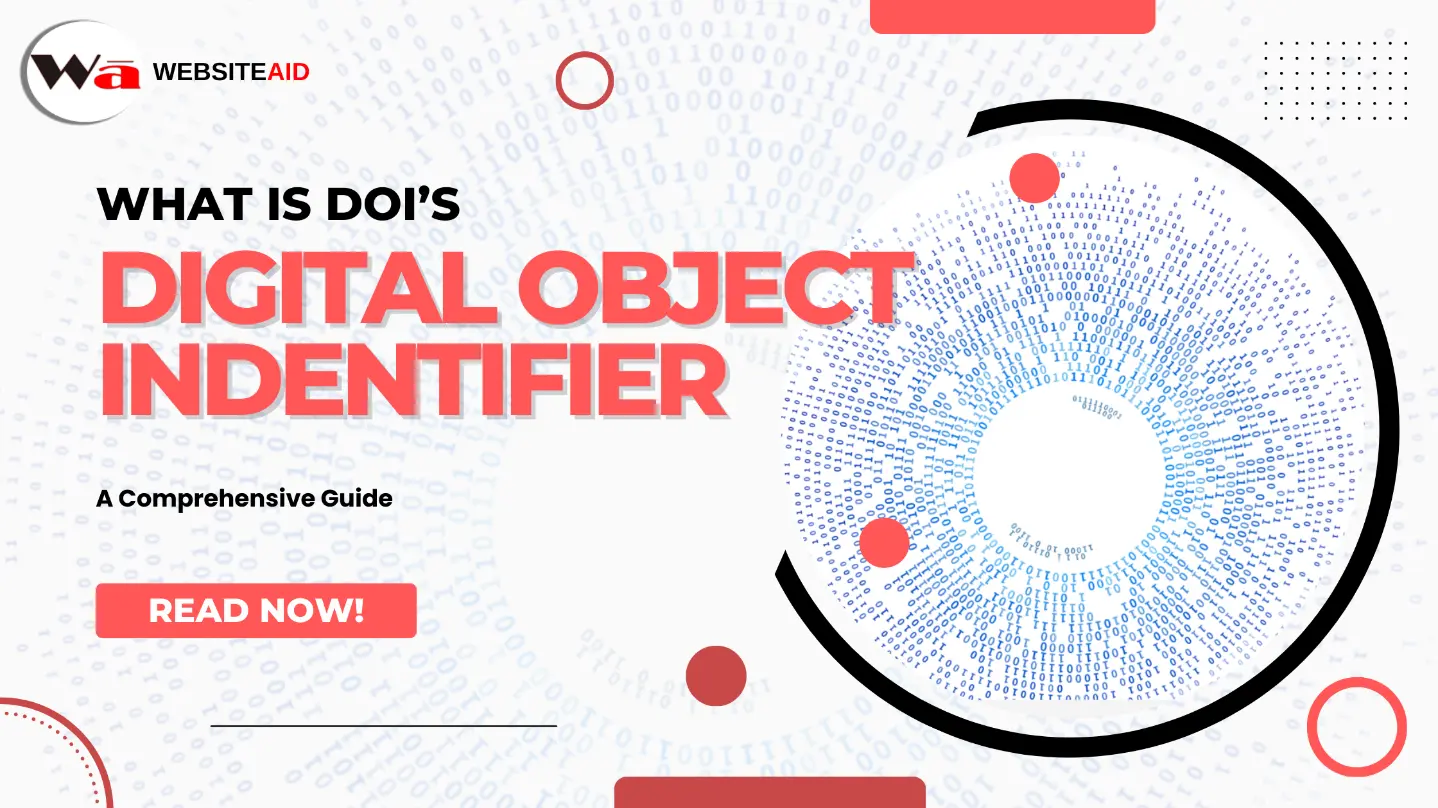What is a DOI?
A Digital Object Identifiers (DOI) is a distinctive and persistent identifier assigned to digital objects, simplifying their discovery, citation, tracking, and sharing. Think of it as a permanent, online address for your digital content, akin to how a postal address identifies a physical location.
Benefits of using DOIs:
- Persistence: DOIs remain constant even when the location of the digital object changes.
- Uniqueness: No two digital objects share the same DOI.
- Accessibility: DOIs help users locate the specific digital object they’re looking for.
- Citation Management: DOIs streamline referencing digital objects in academic or professional writing.
- Tracking and Management: DOIs aid in tracking usage and versions of digital objects.
Who assigns DOIs?
DOIs are assigned by authorized Registration Agencies (RAs) that adhere to the requirements and regulations set by the International DOI Foundation (IDF). These RAs ensure proper DOI assignment and maintenance.
What types of objects can have Digital Object Identifiers (DOIs)?
DOIs are primarily used for:
- Scholarly publications: Journal articles, conference proceedings, books, book chapters, etc.
- Research data: Datasets, code, images, etc.
- Government publications: Reports, regulations, etc.
- Multimedia: Videos, audio recordings, etc.
- Educational materials: eBooks, learning objects, etc.
Tools for Managing and Finding Objects with DOIs:
- DOI Search Tools: These online tools allow you to search for specific objects by entering their DOIs. Some examples include Crossref Search, DataCite Search, and DOI.org search.
- Citation Management Software: These programs (e.g., EndNote, Zotero, Mendeley) help manage and format citations, including those using DOIs.
- Digital Libraries and Repositories: Many online platforms like ResearchGate, Academia.edu, or institutional repositories often display the DOI alongside the digital object.
Additional details:
- DOI format: A DOI consists of a prefix and a suffix separated by a slash (“/”). The prefix identifies the registration agency, and the suffix uniquely identifies the specific object.
- DOI lookup: Websites like doi.org allow you to look up information about a specific DOI and even land on the corresponding website of the digital object.
By understanding DOIs and utilizing them effectively, you can ensure your digital work is accessible, properly cited, and easily tracked within the vast digital ecosystem.
FAQs related to Digital Object Identifiers (DOIs)
- What is a DOI?
- A DOI, or Digital Object Identifier, is a unique and persistent identifier assigned to digital objects for easy tracking, citation, and sharing.
- How do I get a DOI?
- You can obtain a DOI by registering your digital object with an authorized Registration Agency (RA) that adheres to the standards set by the International DOI Foundation (IDF).
- What types of digital objects can have DOIs?
- DOIs can be assigned to various digital objects, including scholarly publications (articles, books), research data, government reports, multimedia files (videos, audio), and educational materials.
- Why are DOIs important?
- DOIs provide persistence, uniqueness, and accessibility to digital content, aiding in citation management, tracking usage, and ensuring content remains discoverable.
- How do I cite a DOI in my research paper?
- To cite a DOI in your research paper, include the DOI at the end of the reference list entry for the digital object, typically in the format: “DOI: [insert DOI here].

